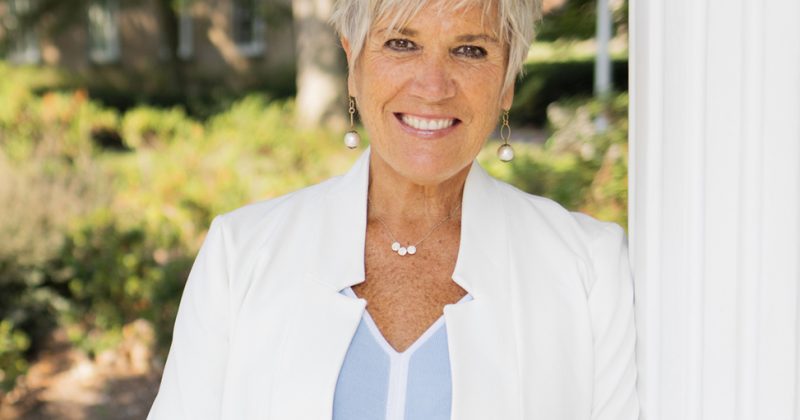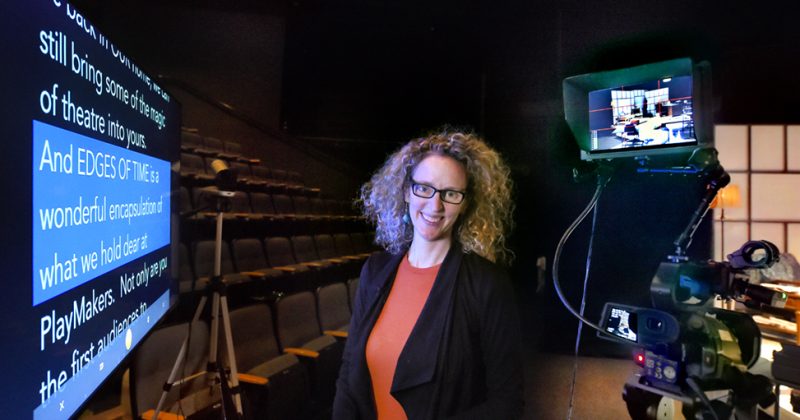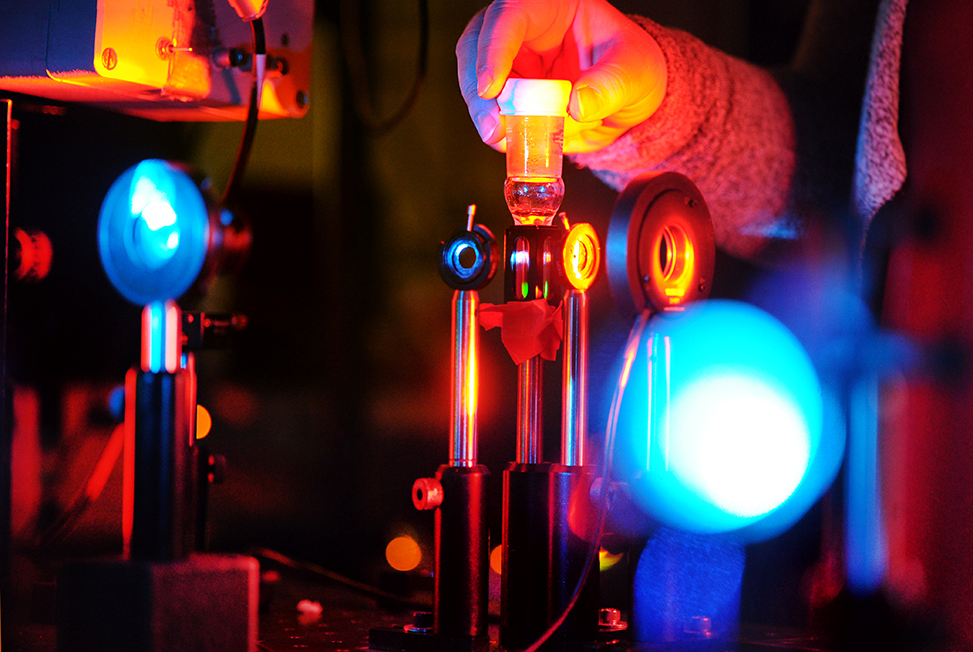
Interdisciplinary faculty research designed to tackle compelling problems is finding support from the Institute for Convergent Science in the Genome Sciences Building on campus. The goal: Expediting the research-to-marketplace pipeline.
 The laser lab in Murray Hall. (photo by Donn Young)
The laser lab in Murray Hall. (photo by Donn Young)
Carolina’s more than $1 billion research enterprise has made it one of the most innovative universities in the world, in part due to its culture of collaboration. Now, a campuswide push to bring together collaborative teams to tackle global problems is gaining traction, and a bigger home, in the Genome Sciences Building.
The world’s problems are too complex for any single discipline to solve. Deadly diseases, energy shortages, water scarcity and natural disasters are sprawling challenges that demand diverse problem-solving approaches. In this feature package, we explore how convergent science teams at UNC seek to discover new sustainable energy technologies, radically improve medical imaging, expedite DNA extraction and understand extreme weather.
Researchers who venture beyond their own fields to address complex problems often discover rich inspiration and synergy — even commercial opportunity. In this convergent science approach — science without silos — the intention is to come together on solutions that the world needs and to create new technologies with market potential.
But transforming a big idea into a successful company requires space, resources and funding — high hurdles for faculty entrepreneurs to surmount. Which is why UNC’s Innovate Carolina has fostered a yes-we-can culture of innovation and entrepreneurship on campus for the past decade, helping faculty navigate the roadblocks that may slow their go-to-market paths.
Today, the College of Arts & Sciences, Innovate Carolina and UNC Research are working together to support the Institute for Convergent Science, which has entered a pilot phase in the Genome Sciences Building. There, faculty have access to meeting spaces for brainstorming, wet labs for testing concepts and resource support for everything from accounting to grants to insurance.
Ready, set, go
The Genome Sciences Building is a natural fit to incubate convergent science-themed technologies and startups. It is located in a hub on campus that geographically links faculty in the chemistry and biology departments to those in medicine, pharmacy and nursing. And the KickStart Accelerator, which provides wet lab rental space for startups, is in this premier research facility.
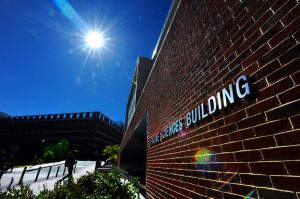
Michelle Bolas, associate vice chancellor for innovation strategy and programs with Innovate Carolina, said the University spent several years looking for an appropriate space to dedicate to fostering startups.
“These very young, nascent companies need time to develop their work and their technology,” Bolas said. “We have that piece in the KickStart Accelerator, but now we need to look further upstream at how to nurture startup ideas in the earlier stages.”
Last summer, Chris Clemens was named the ICS faculty director. Clemens is senior associate dean for research and innovation in the College and a physics and astronomy professor. He said the ICS has three phases in its “innovation framework,” quite simply identified as Ready, Set and Go.
“When you’re running a race, you never tell the runner to just go,” he explained. “There’s a process to getting ready, to preparing your stance for the starting gun.”
In the Ready phase, the ICS will help support faculty in refining and vetting their ideas. A newly renovated 7,500-square-foot-space on the building’s ground floor, named the Convergent Commons, will be instrumental to this phase. “It’s a space for ideas, workshops and brainstorming,” Clemens said. “The Ready phase is about putting your team and ideas together.”
The new commons space is directly below the KickStart Accelerator on the second floor.
“When faculty get to the stage where they have devices or processes that need prototyping or they need to validate an invention for commercialization, they move to the middle lane for development. This is the Set phase in Ready, Set, Go,” Clemens said. “And that’s what we are trying to build at the moment.”
Lanes two and three in the innovation framework happen on the second floor. Clemens said ICS temporarily gave up some space intended for the Set phase for UNC to set up its COVID-19 test processing lab. ICS will reclaim the space when the lab operation is no longer necessary.
When the ventures are on firm ground and ready to launch as independent companies, they move to the Go phase and enter the KickStart Accelerator, which has been operating since last fall.
“This space contains wet labs and is used by early-stage companies that need modest amounts of commercial space separate from the research labs where they were born. KickStart is about helping UNC-licensed companies in the first leg of the race,” Clemens said. [See story about two faculty startups that have benefited from KickStart.]
The KickStart program can house 12 to 15 companies and is currently 75% full. “This shows the level of interest,” Bolas added. “We had a backlog of faculty who were waiting for this kind of space to become available.”
The KickStart Accelerator is managed and operated by KickStart Venture Services, one of Innovate Carolina’s core programs.
Convergent solutions
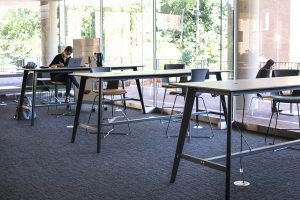
Clemens began his own tech venture several years back, and the experience informs his perspective. His company, Syzygy Optics, makes optical diffraction gratings that have spectroscopy applications in astronomical research equipment.
“I think it’s significant to have a faculty director of the ICS who is an inventor himself,” Bolas said. “He understands what it takes and is well-suited to build a program to support faculty, to get them to a place where they hear ‘yes’ more than they hear ‘no.’”
The genesis of the ICS and its operations in the Genome Sciences Building are the culmination of a decade-long innovation roadmap designed by the University, Bolas said.
“We’re now taking that infrastructure that we’ve built and are identifying gap areas where UNC is uniquely positioned to address very pressing challenges that the market needs,” Bolas said. “Those may be in areas like gene and cell therapy, or environmental engineering and energy. This is really an exciting moment.”
By DeLene Beeland
Read other stories about convergent science research:
Building resilience for storm-battered N.C.
Published in the Spring 2021 issue | Features
Read More
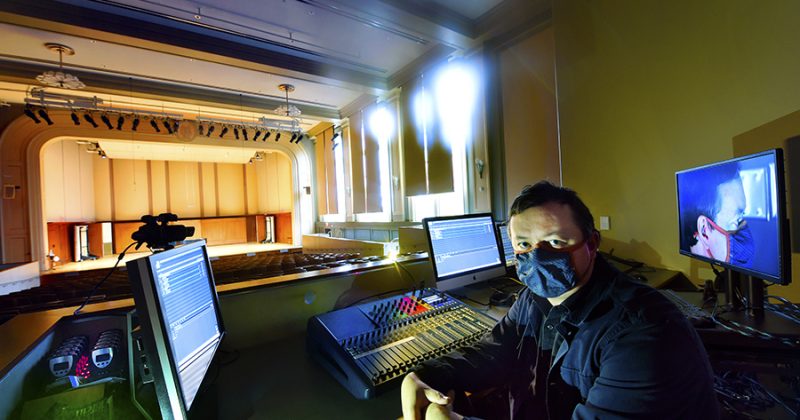
Lights on the Hill spotlights employees who go above and beyond for others
Lights on the Hill, a new monthly website feature highlighting…


